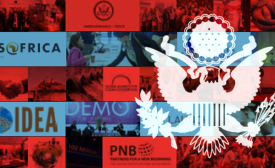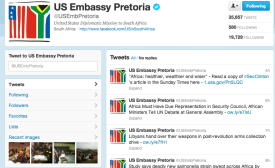Related CPD Research Projects

Governments face a lack of resources to meet citizen demands and collective interests at home and abroad. This project is designed to expand efforts to evaluate current policy to engage with and invest in projects with diaspora organizations, aka “diaspora diplomacy.”

The goal of this project facilitated understanding about how new public diplomacy can assist efforts to quell the TB epidemic and to identify the prerequisites for using public diplomacy in global health effectively.

This study examined the challenges and opportunities that exist in the case of Egypt, particularly in terms of educational and cultural affairs.

This project examines contemporary efforts of digital engagement conducted by the United States Department of State. The purpose is to probe key assumptions about the relationship between power and communication evidenced in contemporary practices of public diplomacy.

This project will utilize two case studies comparing the strategic narratives put forward via social media and related new media technologies by a major power (the United States) and an emerging power (South Africa) on strategic African political issues.

Public diplomacy is typically defined as how a nation’s government or society projects itself to external audiences in ways that improve these foreign publics’ perception of that nation. Europe, in particular, is rich with valuable public diplomacy cases to draw upon. In the long run, public diplomacy that is successful should result in more soft power (a state’s ability to co-opt or attract) and in favorable policies towards the nation that engages in it. Currently, there is a gap in the IR literature on soft power and the mechanisms behind it.

This project examines the history, status quo and challenges of Buddhism and public diplomacy, and discuss implications for U.S. public diplomacy. With its high-profile return to Asia since 2010, the United States has yet to redefine its relationship with the ASEAN countries, especaially China, India, and Mongolia, with many Buddhist adherents. How to effectively communicate to these nations should be of interest for U.S. public diplomacy.
This research project centered on the Indo-U.S. diplomatic relationship throughout the post-war period, and investigated the role (and probable failure) of U.S. public diplomacy in India. The two core outputs of this research included a detailed historical survey of U.S. public diplomacy in India and an overview of perceptions and misperceptions of the United States in contemporary India.







